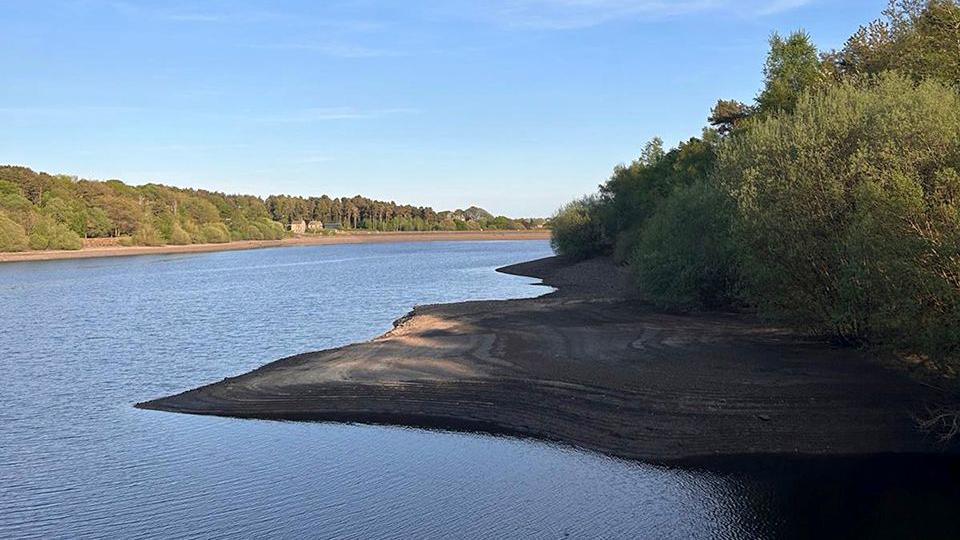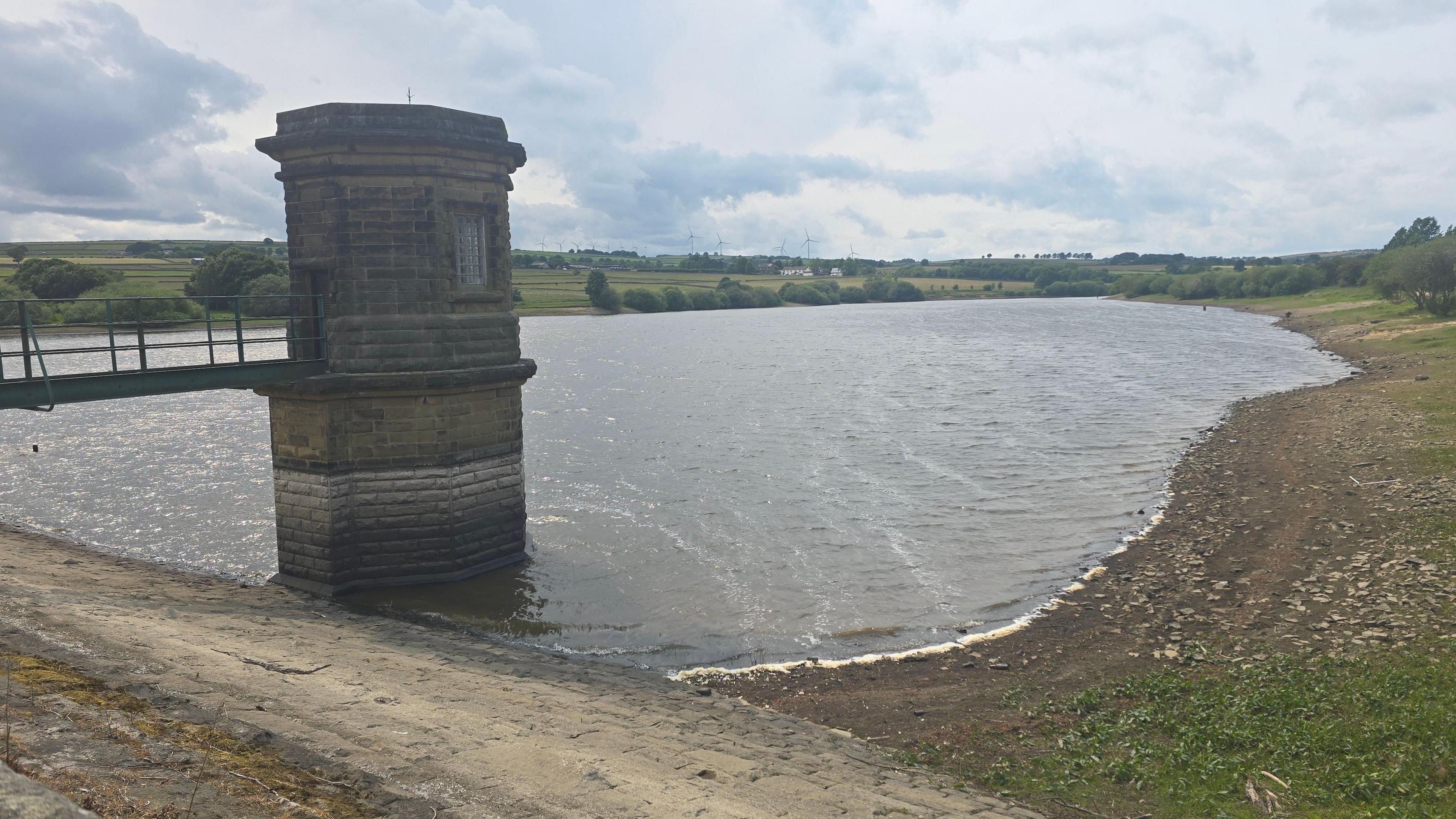Drought declared across Yorkshire

The region experienced an unusually dry spring
- Published
A drought has been declared across Yorkshire by the Environment Agency.
It follows weeks of unusually dry weather in the region, leading to low water levels in reservoirs and rivers.
Yorkshire Water said the declaration did not immediately change the situation for customers but warned that temporary restrictions on water usage could be introduced if there is no significant rainfall.
The announcement comes after England experienced its driest spring in more than 100 years, beaten only by 1893, according to the Met Office.
Claire Barrow, Yorkshire environment, planning and engagement manager at the Environment Agency, said: "Our climate is changing, and we had 22 days of almost no recorded rainfall in May.
"While we have had some rain at the start of June, it has not been enough to reverse the impacts of the prolonged dry weather.
"We are working with Yorkshire Water to make sure they enact their drought plans."
Ms Barrow also encouraged people to be aware of the environmental impacts of droughts and take steps to save water.
Yorkshire last experienced a drought in 2022, when a hosepipe ban was also put in place.
Water Minister Emma Hardy said she was receiving regular updates from the Environment Agency.
"I'm doing everything in my power to hold Yorkshire Water to account to ensure we have the regular supply of water that is needed across the region," she added.
Met Office statistics showed that West Yorkshire, North Yorkshire, East Yorkshire and South Yorkshire had seen just 40%, 43%, 40% and 41% of the average rainfall for March, April and May.
Drought status was previously declared for the north west of England in May and three other areas - the North East, East Midlands and West Midlands - are also experiencing prolonged dry weather.

Dave Kaye, from Yorkshire Water, said the dry spring had impacted reservoir levels
Dave Kaye, director of water at Yorkshire Water, said: "We've seen water demand decrease in recent weeks thanks to the welcome rainfall and the efforts of our customers to save water.
"We had one of the driest springs on record, which has impacted our reservoir levels, meaning they are much lower than normal for this time of year.
"Without significant rainfall in the coming months, temporary usage restrictions are a possibility."
Mr Kaye said that the drought declaration did not immediately change the situation for customers.
But he said the firm would continue to work closely with the Environment Agency to manage resources carefully and move water around the region to areas that need it most.

Levels at reservoirs such as Scout Dike near Penistone are significantly below average, Yorkshire Water says
Scientists have warned that drought conditions will become more intense in the UK, with climate change putting strain on water resources.
Dr Jess Neumann, associate professor of hydrology at the University of Reading, said: "The drought announcement in Yorkshire comes only a few weeks after parts of north-west England declared a drought.
"An unseasonably dry spring, the driest in nearly 90 years, means many reservoir levels are only 60-65% full, well below the 80-85% average for this time of year.
"The lack of rainfall is placing significant strain on public water supply, affecting agricultural crop production, and harming wildlife and the environment."
Dr Neumann added that drought status in two large areas of England "raises important questions about the security of our water in the long term".
"It is no longer abundant and plentiful. We urgently need to adjust to a future of climate change and water stress," she said.
Get in touch
Tell us which stories we should cover in Yorkshire
Listen to highlights from West Yorkshire on BBC Sounds, catch up with the latest episode of Look North.
Related Internet links
- Published28 May

- Published15 May
